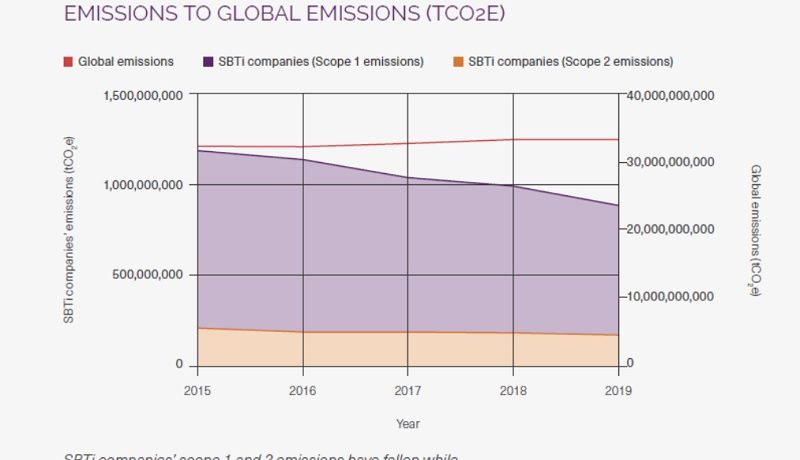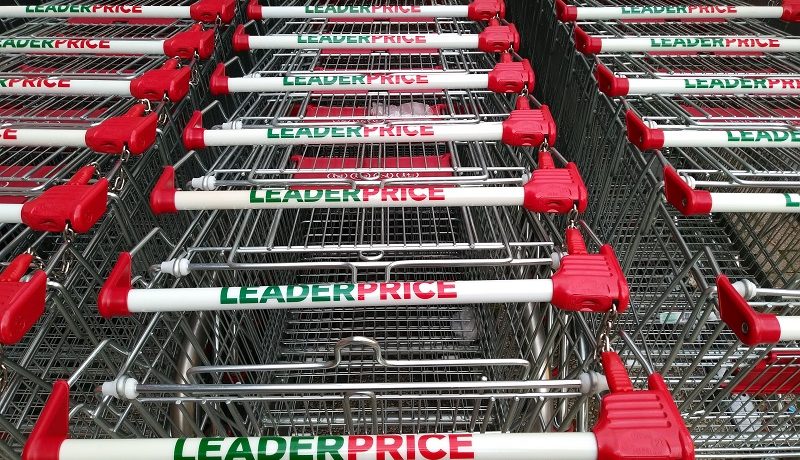Febbraio 2021
Accordo con ADACI per efficienza nelle aziende socie. Sono iniziati gli interventi di SmartEfficiency per migliorare l’Efficienza Energetica nelle aziende i cui manager, soci di ADACI – Associazione Italiana Acquisti & Supply Management, si avvalgono del Progetto “VIRGILIO ADACI”, lanciato nel 2020 allo scopo di erogare servizi sempre più innovativi a beneficio dei propri associati.
(altro…)
To reduce over-consumption. European Parliament demands EU targets to reduce over-consumption. MEPs confirm push for targets to curb over-consumption and decouple economic growth from resource use – an unprecedented move that could help Europe transition to a more resilient and less wasteful economy.
MEPs are looking to further accelerate Europe’s push against the throwaway economy, following a key plenary vote in the European Parliament.
Amongst other amendments, lawmakers called for the introduction of two legally binding targets to significantly reduce the EU’s material and consumption footprints by 2030. The targets would help curb Europe’s consumption and material footprints, bringing consumption and production patterns within planetary boundaries by 2050.
The vote confirms the position of the Parliament’s environment committee, which introduced the amendments two weeks ago. The European Commission will now have to take into consideration the demands of MEPs with a view to updating its Circular Economy Action Plan put forward last year.
Hailed as one of the pillars of the European Green Deal, the Commission’s proposal for the action plan was already praised for supporting sustainability and durability in the design of textiles, electronics, packaging, batteries, and other products.
MEPs also called for the absolute decoupling of economic growth from resource use, questioning the Commission’s arguments for green growth as a strategy for sustainability.
The Parliament’s stance significantly improves this strategy, according to Stephane Arditi, Director of Policy Integration and Circular Economy at the European Environmental Bureau (EEB). He said: “Legally binding targets for material use and consumption patterns are badly needed. They were the main missing piece of the puzzle in the European Commission’s proposal. If approved by the Commission and member states without delays, the targets can play a central role in Europe’s green recovery, helping citizens, businesses and governments save valuable and limited resources.”
Despite being the very first legally binding targets addressing over-consumption at EU level, the Netherlands and Finland have already adopted similar measures.
Other notable amendments approved by the environment committee push for:
– An ambitious policy making sustainable products placed on the EU market the norm and the affordable choice. In this regard, MEPs support the development of a product passport;
– Measures aimed at putting an end to planned obsolescence in everyday products.
– A more limited role for chemical recycling, which is to be assessed based on its environmental impact;
– Binding targets to reduce and cap the generation of waste, and to prevent waste. The Parliament also wants an additional target to boost the preparation of products for reuse;
– Measures aimed at reducing waste incineration and landfilling. These include a 10% landfill target to be set on a baseline year and kg of waste per person a year in order to prevent diversion from landfilling to waste incineration;
– The need to reinforce the EU Ecolabel as a benchmark for environmental sustainability
The European Environmental Bureau (EEB) is Europe’s largest network of environmental citizens’ organisations, standing for environmental justice, sustainable development and participatory democracy. Our experts work on climate change, biodiversity, circular economy, air, water, soil, chemical pollution, as well as policies on industry, energy, agriculture, product design and waste prevention. We are also active on overarching issues as sustainable development, good governance, participatory democracy and the rule of law in Europe and beyond.
330+ firms to reduce emissions by a quarter in five years since Paris Agreement. Analysis of 338 companies shows companies with ambitious science-based targets (SBTs) are delivering on Paris-aligned ambition, with emissions reductions at scale
As global leaders gather for the UN’s Climate Adaptation Summit on climate resilience, new data published by the Science Based Targets initiative (SBTi) shows that companies with science-based targets are delivering on large-scale emissions reductions. Target-setting companies have successfully reduced their emissions by 25% since 2015, a difference of 302 million tonnes of CO2 equivalent, the same as the annual emissions from 78 coal-fired power plants.
Five years on from the Paris Agreement, the SBTi analysed the emissions of a group of 338 companies whose climate targets have been approved by the SBTi as aligned with climate science and the goals of the Paris Agreement. This is the first ever study to look at how setting science-based targets correlates with corporate emissions reductions and the extent to which companies are actually delivering on those targets (338 companies out of 478 total SBTi companies with targets – SMEs using the streamlined route were excluded – are included in this analysis. Companies that were missing any emissions data between 2015-2019 were excluded. Emissions data was derived from public and private disclosures through CDP, as well as public sources such as sustainability reports. In all cases, emissions data was reported by companies. The reported emissions reductions may be due to any number of factors including concerted emissions reduction efforts, changes in activity levels or types, and changes in business structure).
SBTi finds that the typical company with SBTs actually slashed direct (scope 1 and 2) emissions at a linear annual rate (6.4%) that exceeds the rate required under the SBTi’s criteria to meet 1.5°C-aligned warming scenarios (4.2%). This shows companies with SBTs are taking climate action at rates that not only meet, but are faster than, the pace of action required by the Paris Agreement. These figures compare to an average increase of around 0.85% per year in global emissions for energy and industrial processes over the same period (see Fig.1 graph below).
New research from the SBTi suggests that the planned emissions savings of companies with science-based targets are also set to generate US$25.9 billion of new investment into climate mitigation initiatives in the next decade.
Alexander Farsan, Global Lead on Science Based Targets at WWF, one of the SBTi partners said: “Today’s findings are a mark of progress at the beginning of a critical year for climate action. It shows that companies setting science-based targets are backing these commitments up with action – delivering the emissions reductions we know are vital if we want to meet the goals of the Paris Agreement. SBTi companies have cut their emissions by a quarter over the last five years – and we need more companies to follow in their footsteps. With COP26 on the horizon, now is the time for the private sector to step up to the plate and follow the science. If a company is genuine about protecting the climate, then it should be setting science-based targets.”
The research also shows that, despite the challenges of COVID-19, 2020 was a milestone year for corporate climate commitments. Over 1,000 companies, making up 20% of global market capitalization, have now set, or committed to set, a science-based target. Companies that joined the SBTi in 2020 included Amazon, Facebook and Ford. The SBTi’s analysis finds that the rate of adoption of science-based targets doubled in 2020 versus the period 2015-2019, with over 370 companies joining the SBTi in 2020[5] at an average rate of 31 per month in 2020.
Additionally, more companies are now setting targets aligned with limiting global warming to 1.5°C than, for instance, a 2°C pathway or other type of target: 41% of all companies with science based targets have 1.5°C-aligned scope 1 and 2 targets.
Progress has been particularly strong in developed economies: in 16 OECD countries, a critical mass of 20% of high-emitting companies setting science-based targets has now been reached. In 2020, this 20% threshold was also reached in six new sectors, including the high-emitting and hard to abate cement and concrete sector. However, there is huge potential to further scale up ambition and improve progress in high-emitting sectors such as construction and automotives.
The global picture also shows commitments are lagging in some regions. In Europe, a critical mass of corporates with Paris-aligned climate commitments has been reached: 34% of all companies with the greatest climate impact have committed to, or set, SBTs in contrast to just 16% in North America and 12% in Asia.
Lila Karbassi, Chief of Programmes at the United Nations Global Compact, one of the SBTi partners, said: “It is encouraging that, even in the midst of a global pandemic, corporate climate action soared in 2020. COVID-19 has revealed the vulnerability of our current economic model, and showed us that a coordinated global effort led by science is the only way out of such crises. We must channel these learnings into our collective response to the climate crisis. In many sectors and regions, we have reached a ‘critical mass’ of companies making meaningful commitments to reduce emissions, but this needs to be a global and sector-wide effort, supported by ambitious government policy, to truly build back better.”
Jason Tarry, Tesco UK and ROI CEO said: “Since setting our science-based goals, we’ve started our transition to 100% renewable electricity across our own operations by 2030, introduced a new fleet of electric delivery vans in London as part of plans to go fully electric by 2028, and begun the rollout of the UK’s largest retail network of electric vehicle charging points across 600 of our stores.
We’ve also become the first retailer to issue a new corporate bond that is aligned to an agreed Sustainability Performance Target (SPT) of reducing Group greenhouse gas emissions by 60% by 2025 against our 2015 baseline. It’s encouraging to see science-based target-setting correlating so strongly with emissions reductions and we hope to see more companies taking the urgent action needed to reduce environmental impact across all sectors, including food.“
Ernesto Ciorra, Chief Innovability® Officer at Enel said: “Enel’s strategy and integrated business model place sustainability and the fight against climate change at their core. Setting science-based targets supports an ambitious decarbonization roadmap, clarifying the alignment with the Paris Agreement, and promotes a global net-zero energy system, while reinforcing the message that climate action is an investment through which we can make a meaningful impact, creating true shared value at the global level. If corporate strategies do not encompass targets as serious as SBTi ones, they do not go beyond lots of talk and a badge of cinematic fame. #NoSBTiNoParty”
Kristina Kloberdanz, Chief Sustainability Office at Mastercard said: “This will be a crucial year for climate action, and we believe the private sector has a vital role to play in the transition to a zero-carbon economy. That’s why we updated our target with the SBTI and have aligned our ambition- across our whole value chain- with a 1.5C world,” said Kristina Kloberdanz, Chief Sustainability Officer, Mastercard. We are already making progress toward thi starget by fousing on key areas of business, inclusing decarbonization of our operations and supply chains, while also leveraging our tehnology and global network to make a positive impact on th environment at scale. Today’s data shows that increasingly more corporates are stepping up their role in this collaborative effort to address the climate challenge- and as an SBTI company we’re proud to be at the forefront of this change.”
About the Science Based Targets initiative
The Science Based Targets initiative mobilizes companies to set science-based targets and boost their competitive advantage in the transition to the low-carbon economy. It is a collaboration between CDP, the United Nations Global Compact, World Resources Institute (WRI) and the World Wide Fund for Nature (WWF) and one of the We Mean Business Coalition commitments. The initiative defines and promotes best practice in science-based target setting, offers resources and guidance to reduce barriers to adoption, and independently assesses and approves companies’ targets.
Salute Pianeta Terra Madre: politica, economia e società civile abbiano la salute del pianeta, degli ecosistemi e delle persone come obiettivo comune. Secondo gli scienziati la biodiversità, a partire dal microbiota e dal cibo che mangiamo, è la risposta alla crisi climatica
Esiste una sola salute, del pianeta, degli ecosistemi, degli animali, delle piante e della specie umana, tutto è strettamente connesso, a partire dalla biodiversità invisibile dei microbi e dal cibo che mangiamo. Ed è per questo che politica, economia e società civile devono lavorare sempre di più insieme, come in una sorta di triangolo, con lo stesso obiettivo di preservare l’equilibrio degli ecosistemi e il benessere delle persone.
È questo il messaggio che cinque medici, ricercatori e divulgatori scientifici di fama internazionale hanno lanciato nel corso della conferenza Salute del pianeta, salute delle persone disponibile a questo link sulla piattaforma di Terra Madre Salone del Gusto. Questo appuntamento fa parte del percorso realizzato da Slow Food grazie al supporto di Reale Mutua che per un mese approfondirà il tema Cibo e salute.
La pandemia di Covid-19 ci ha messo di fronte alla necessità, non più procrastinabile, di rivedere il nostro approccio con la natura, di guardare alla tutela della biodiversità non più come un impedimento alla corsa forsennata del sistema capitalistico, ma come una risorsa per mitigare la crisi climatica.
«La chiave per agire di fronte a questo scenario è l’approccio olistico, basato sul fatto che il pianeta, le piante e gli animali, noi esseri umani, condividiamo tutti uno stesso futuro, che con le nostre scelte possiamo influenzare positivamente o negativamente» sottolinea Andrea Pezzana, direttore della S.C. Dietetica e Nutrizione Clinica presso ASL Città di Torino e consulente scientifico di Slow Food per il tema Cibo e salute, moderando l’incontro. Una visione che da sempre fa parte della filosofia e dei progetti avviati da Slow Food in oltre 30 anni di attività e che oggi si possono toccare con mano in 160 Paesi in cui il movimento è presente. «Sano è il naturale completamento di buono, pulito e giusto, i tre pilastri del cibo di qualità così come lo intende Slow Food ed è per questo che stiamo lavorando a un position paper su questo tema e chiediamo a tutti di offrirci il proprio contributo affinché questo documento possa davvero essere olistico e condiviso e possa indicare le linee guida da seguire a livello internazionale»
Cibo e salute infatti è anche una sezione tematica, realizzata con il contributo di Reale Mutua, Sostenitore Ufficiale di Slow Food Italia, che si arricchisce di giorno in giorno di notizie, approfondimenti, video, consigli…
L’effetto spillover e il concetto di One Health
Alla base del Covid-19, e di tutte le altre pandemie del passato, c’è il fenomeno dello spillover, reso ormai famoso dall’omonimo libro scritto nel 2012 dal giornalista e divulgatore scientifico David Quammen, intervenuto in apertura della conferenza: «Viviamo in un pianeta di virus, ma quello che genera il salto di specie, lo spillover, da un animale selvatico all’uomo, è lo squilibrio ecologico. Quando l’essere umano disturba ecosistemi remoti per catturare gli animali e nutrirsene, per abbattere alberi, estrarre carburanti fossili o altre risorse minerarie, si espone ai virus degli animali selvatici, creando opportunità per la diffusione di una pandemia».
Quammen ricorda il concetto di “one health”, su cui le Nazioni Unite lavorano dal 2017 per creare un fronte comune di ricerca e sensibilizzazione e prevenire proprio il diffondersi delle pandemie: «Siamo tutti connessi: le scelte che compiamo, compreso il cibo che mangiamo, e il modo in cui quel cibo è prodotto o allevato hanno implicazioni che possono condurre a un pianeta più sano oppure a una pandemia».
La vita al microscopio che fa la differenza
Abbiamo sempre pensato che i microbi, e cioè tutti quegli esseri invisibili alla base della vita sulla Terra, dovessero essere eliminati affinché la nostra salute fosse garantita. Negli ultimi 20-30 anni invece abbiamo scoperto che sono molto importanti per il pianeta, le piante e gli animali perché garanzia di biodiversità.
E secondo Heribert Hirt, professore dell’Institute of Plant Sciences, Inra Paris, Francia; del Center for Desert Agriculture, Kaust, Arabia Saudita e del Max Perutz Laboratories, University of Vienna, Austria, sono proprio i microbi all’interno del nostro corpo che fanno la vera differenza tra un individuo e l’altro: «Osservando il nostro quadro genetico, abbiamo scoperto che siamo tutti uguali al 99,9%, mentre è guardando al microbiota intestinale, e cioè al complesso di microbi che popolano una persona, che si riscontrano differenze tra l’80 e il 90%. E questo incide anche nel modo in cui il nostro organismo funziona e reagisce alle pressioni esterne».
Un microbiota intestinale inadeguato è causa della disbiosi, cioè l’opposto della simbiosi, e può essere causa di patologie come diabete, Alzheimer e tumori. E allora come possiamo nutrire il nostro microbiota? «Nel nostro corpo ci sono più microbi che cellule e non sono solo passeggeri, sono abitanti a tutti gli effetti. Li ereditiamo a partire dal liquido amniotico, li rinforziamo con l’allattamento e l’ambiente che ci circonda. Ma è a partire dallo svezzamento che il quadro può cambiare sostanzialmente: i cibi tradizionali con alti contenuti di fibre, minerali e vitamine fanno la differenza. Dove trovarli? Innanzitutto mangiando tante verdure e cibi crudi, ma è essenziale che questi provengano da piante in buona salute, non coltivate con pesticidi, perché questi uccidono i microbi già in campo. Ecco perché è importante il cibo che mangiamo. Tutto è collegato, salute delle piante, degli animali, dell’uomo e il collegamento sono i microbi».
Fragilità dell’ambiente e fragilità dell’ecosistema
La crisi climatica, la crisi ambientale, la pandemia, determinano conseguenze innanzitutto sugli elementi di maggiore fragilità del sistema. Sono gli anziani, i primi a pagare il prezzo del Covid-19 in termini di vite umane. Ma anche gli impollinatori, fondamentali per garantire la varietà e variabilità sulla Terra, la sicurezza alimentare e quella biodiversità che, come ormai tutti gli esperti affermano, può aiutarci a mitigare la crisi climatica, e non solo: «Basti pensare che 1,4 milioni di api sono trasportate ogni anno in California per avviare la fioritura dei mandorli che altrimenti non avverrebbe. Il lavoro degli impollinatori solo negli Stati Uniti vale 15 miliardi di dollari. Eppure non siamo riusciti ancora a debellare la produzione e diffusione dei neonicotinoidi, così tossici per le api» racconta Kathy Sykes, esperta in politiche pubbliche, salute ambientale, invecchiamento e comunità sostenibili negli Stati Uniti. La buona notizia è che piccole azioni possono aiutare i nostri amici impollinatori ma un grande passo deve farlo la politica: «Nel 2015 Obama aveva messo in piedi una task force per salvare gli impollinatori e capire come favorire la loro attività. Pochi giorni fa, Biden appena eletto ha firmato il rientro negli accordi di Parigi sul clima, e questa è una buona notizia per noi».
Politiche globali coerenti su cibo, salute e ambiente
«Le politiche che influenzano il settore alimentare, a diversi livelli – locale, nazionale e globale – per affrontare le sfide attuali devono guardare a cibo, salute e ambiente in maniera olistica e coerente, come lati di uno stesso triangolo» sottolinea Rosalind Sharpe, direttrice del Food Research Collaboration (FRC) di Londra. «Il settore pubblico, quello privato e la società civile possono lavorare insieme a tutti i livelli, per definire, ad esempio, politiche agricole a sostegno delle aree rurali, o commerciali per agevolare la distribuzione di cibi di qualità piuttosto che prodotti altamente processati, possono agire sulle infrastrutture, per esempio l’e-commerce, per aiutare i piccoli produttori a essere competitivi anche in un mercato globale». In tutto il mondo sono diversi i governi che si sono già adoperati, anche grazie all’azione di advocacy di associazioni come Slow Food e alla collaborazione delle aziende private, mettendo in atto decine di iniziative che tutelano la salute pubblica, la biodiversità, i produttori di piccola scala, che limitano gli sprechi, l’uso di antibiotici e pesticidi, che mitighino il consumo di alimenti ricchi di zuccheri e fortifichino l’educazione alimentare a partire dai più piccoli. «Quello che serve è lavorare affinché le politiche globali siano coordinare e determinino un cambio di mentalità a tutti i livelli» conclude la ricercatrice inglese.
La Food Talk integrale di David Quammen
Le connessioni tra distruzione ecologica, pandemie umane e cibo che mangiamo, disponibile online a partire dall’11 febbraio
La più importante manifestazione dedicata al cibo buono, pulito e giusto, è organizzata da Slow Food, Città di Torino e Regione Piemonte con il patrocinio di Ministero delle Politiche agricole alimentari e forestali e Ministero dell’Ambiente e della tutela del territorio e del mare. L’edizione 2020 di Terra Madre Salone del Gusto è possibile grazie al sostegno delle aziende che credono nel progetto. Tra tutte citiamo i Platinum partner: Pastificio Di Martino, Unicredit, Lavazza, Acqua S.Bernardo, Quality Beer Academy; i Gold partner: Agugiaro&Figna, Astoria, BBBell. Con il sostegno di Fondazione Compagnia di San Paolo, Fondazione Cassa di Risparmio di Torino, Associazione delle fondazioni di origine bancaria del Piemonte. Con il contributo di IFAD, UE. In collaborazione con SANA e Turismo Torino e Provincia.
Monitoraggio consumi elettrici Leader Price Italia. SMARTEFFICIENCY per MONITORAGGIO. L’azienda è oggi interamente italiana di proprietà di CRAI, gruppo cooperativo con una società centrale, Crai Secom, e diversi cedi distributivi con esclusività di zona. La conoscenza approfondita del territorio ha permesso di sviluppare una rete di punti vendita di varie dimensioni per soddisfare al meglio il consumatore.






